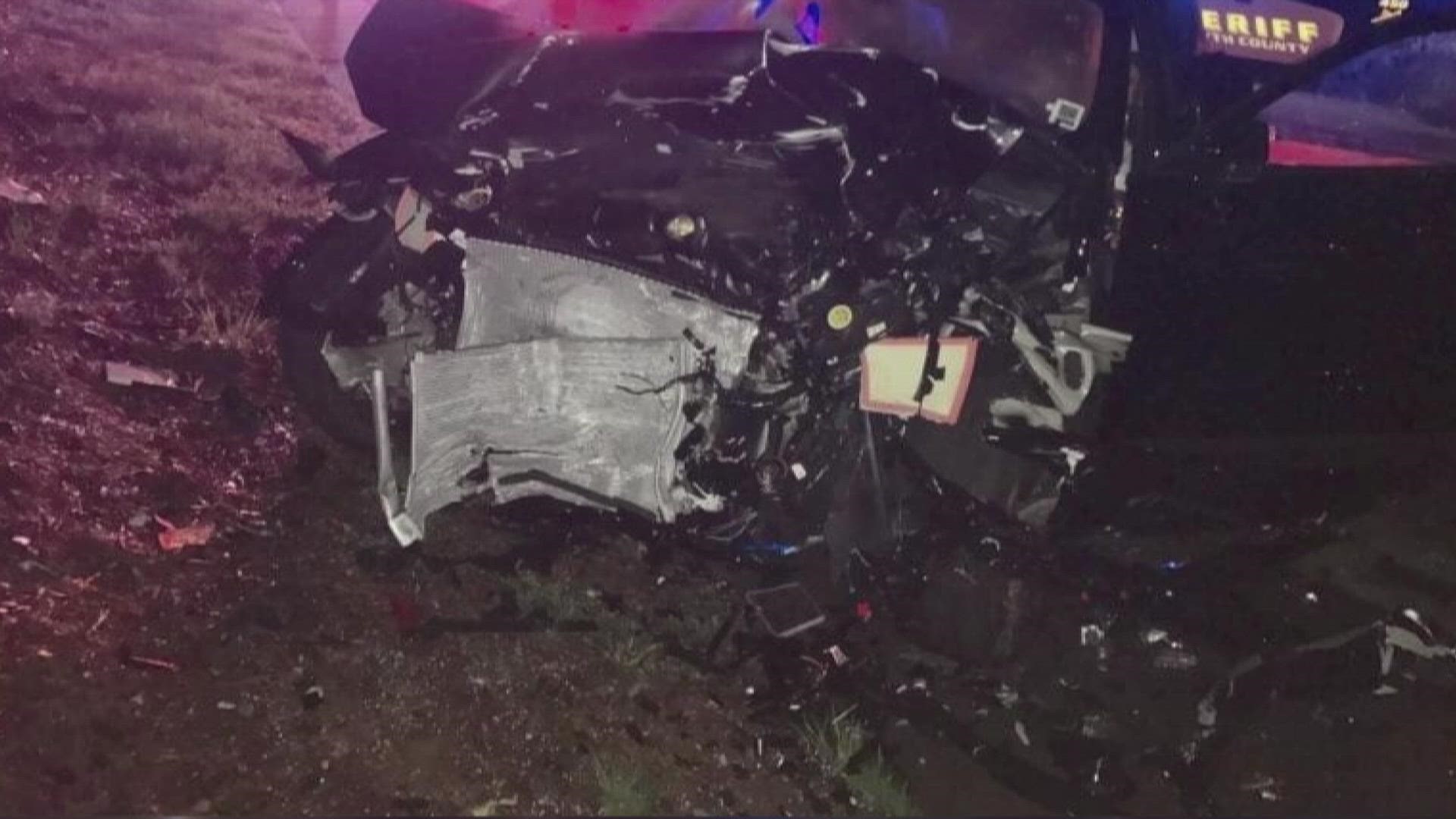SUWANEE, Ga. — For every single runner in the annual July 4th AJC Peachtree Road Race, every single step toward the finish line is a singular, personal triumph.
A triumph for them all — after going through so much tough training.
And, for many of them, it is especially a triumph after going through the toughest of adversities and tragedies.
One runner calls herself one of the luckiest of all.
Jessica Rantamaki of Suwanee can recall every moment July 1, 2017, when her life nearly ended, and the rest of her life began.
Now, five years later, she still thinks about it every day, realizing how much pain and hard work it has taken to recover, grateful she is almost back to full strength and health and running again, and willing to forgive the man who nearly killed her— and wanting to offer support and encouragement to others facing life-altering challenges.
“That morning I had run eight miles on the Suwanee Greenway,” she said, days before the five-year mark. “My husband and I were training for the Peachtree Road Race in 2017."
"That evening we had plans to have dinner with another couple," she continued. "They were picking us up, which they did. Had a lovely time.”
At about 10:30 p.m., they all left the restaurant, and their friends drove them home. Jessica and her husband, Rick, were in the back seat, with their seatbelts fastened.
“We were coming off the highway, and about five minutes from home, they had turned into a residential area to take us back home. And within fifteen seconds of being on that road, it was like the car had exploded.
"We were hit by another vehicle. Head on.”

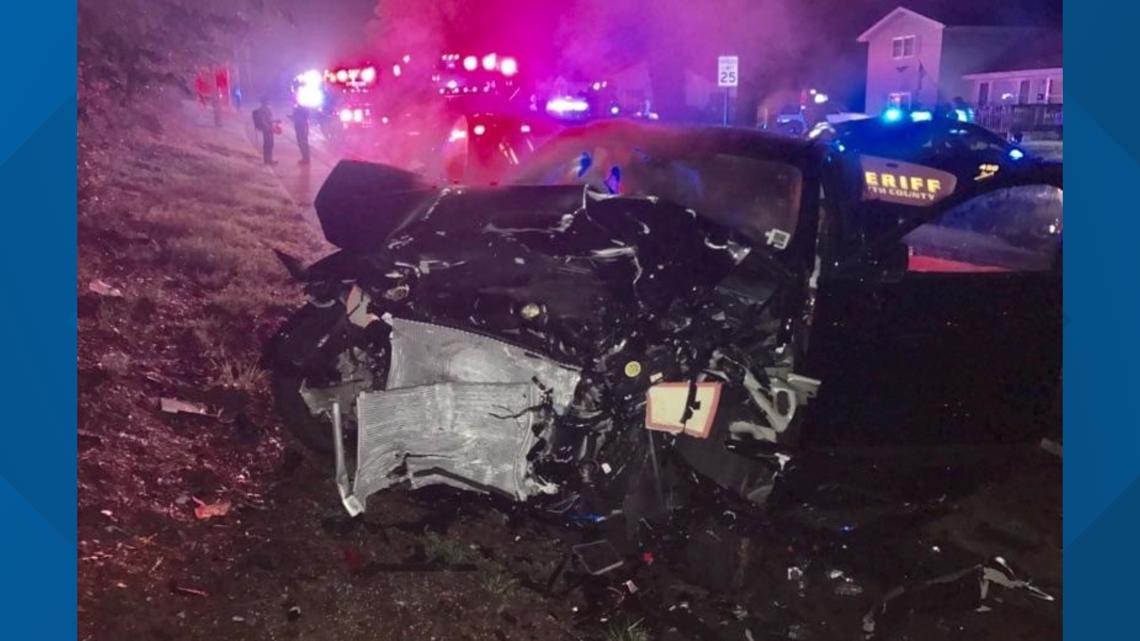
The soul and the heart of a runner are one. The runner’s spirit—beating, alive, always ready to soar. No matter what happens to the body.
Jessica, the runner, in top physical shape which was helping her survival, in a split second tried to figure out what had happened, and what had happened to her and the others.
Jessica’s first thought in the dark, sudden quiet after the collision: she was alive. But what about the others?
“I didn’t know if anybody other than me was still alive in the car. Until I heard people screaming.”
She learned later that the rear seatbelts had saved her life and Rick’s life.
She realized almost immediately her back was broken.
“I was in so much pain in my lower back.”
She wiggled her toes.
“I was thinking to myself, if I can if I can wiggle my toes, then I'm pretty sure I'm not paralyzed.”
She also suffered extensive internal injuries, possibly caused, in part, by the seat belt that saved her life.
“I couldn’t breathe.”
Would she be able to walk?
She learned later that a car thief had been speeding away from police - beginning in Forsyth County and ending in Gwinnett County - when he rammed, head-on, into Jessica, her husband and friends.
The other three were also seriously injured.
Jessica’s injuries were catastrophic.
The car thief was relatively unharmed and tried to run away from police as they quickly surrounded him and arrested him. The woman riding with him was killed in the collision.
Trauma surgeon Dr. Naila Avery and neurosurgeon Dr. Robert Ayer at Gwinnett Medical Center, now Northside at Gwinnett, evaluated Jessica and performed two major surgeries within days of each other: One, to fuse the L1 to L3 vertebrae; the other, to repair severe injuries to her intestines and to repair multiple other internal injuries.
Jessica was facing months of recovery and limited mobility, and was, at first, overwhelmed at the enormity of what had happened to her body and whether she could ever recover.
“I was devastated," she admitted. "To the point where one night in the hospital, it was probably about 2:00 in the morning, I was feeling very sorry for myself. I was in the most excruciating pain” despite the pain killers she was receiving.
“But there was a nurse that came to my room, because I kept pressing the button. And she came in, and I told her, I said, ‘I don't think I'm going to make it through this.’ I said, ‘I don't think I can handle this pain.’ And (the nurse) said, ‘I saw the picture of the car you were in, and I saw what happened to you.’ And she said, ‘You are one of the luckiest people I've ever met.’ She said, ‘You're going to be just fine.’ She was like an angel in the middle of the night."
A priest came to see her, too.
“I was the only one in my room. Rick wasn’t there, none of my friends were there, I was alone. And I was crying to the priest saying, ‘I don’t know why I’m still alive. I had a friend whose daughter was killed in a car accident six months before this. What is the purpose of me still being here?’" she recalled. "And the priest said, ‘Your work on earth is not finished, yet.’
"And we had a long discussion about why certain people die and why certain people are spared, and I took that to say to myself it should be my mission to be a cheerleader for other people," she said. "To give other people the gift of joy in life that I now have. Because I know that it can be gone tomorrow.”
Jessica also realized that part of her recovery had to be to run again, and to run the Peachtree, with Rick, the next July 4th, less than one year away.
She said her neurosurgeon told her, “he said, ‘we’re going to take this in baby steps.’ He said, ‘You will not be able to run for about six months. We're going to start with physical therapy. You're going to have to be able to sit tight with the back brace on for the next, at least three months, and do what you can physically just to walk first.'"

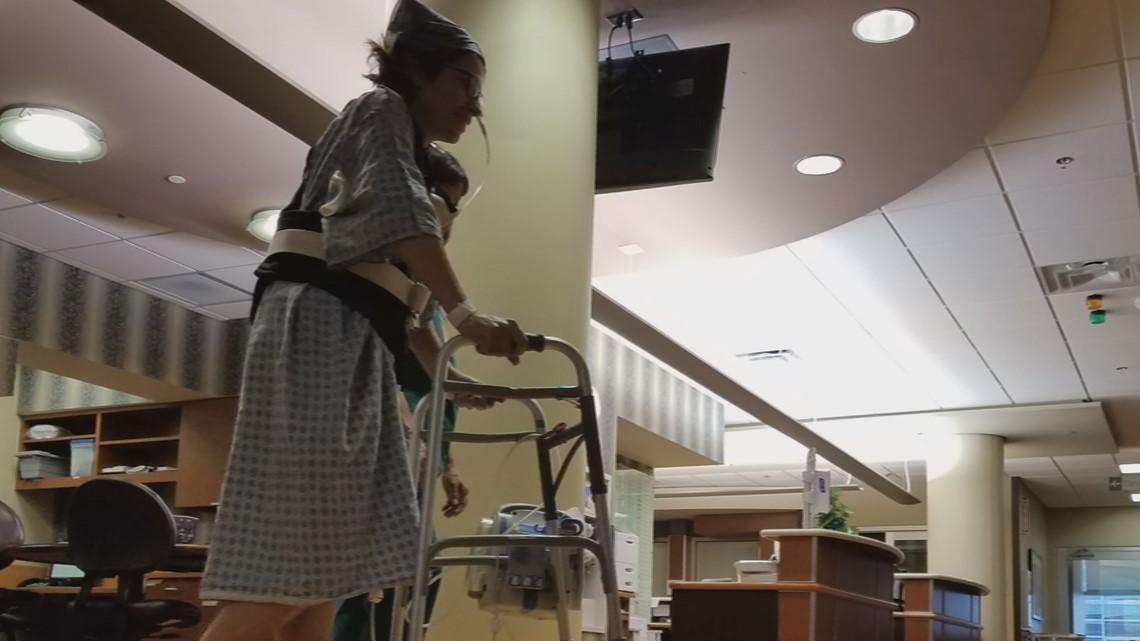
Jessica worked through more pain, her body slowly healing, with physical therapy at home, workouts that gradually became more strenuous, and yoga.
By November, she was able to walk half of a half-marathon, in tears of triumph.
By January, her doctors cleared her to run.
“I felt like I was back in my place," she said.
"Running was, as has always been, mental relief for me, even more than the physical. It's a way for me to just decompress from any stress in life. The fact that I was able to get back to that was — I felt a tremendous relief and victory, especially looking at what I had been through. I felt, strangely enough, like the most fortunate person ever. I realized that I was tremendously lucky to be alive.”
And July 4th, 2018 did become Jessica’s comeback Peachtree, and during the run she proudly displayed the scars on her torso, front and back.

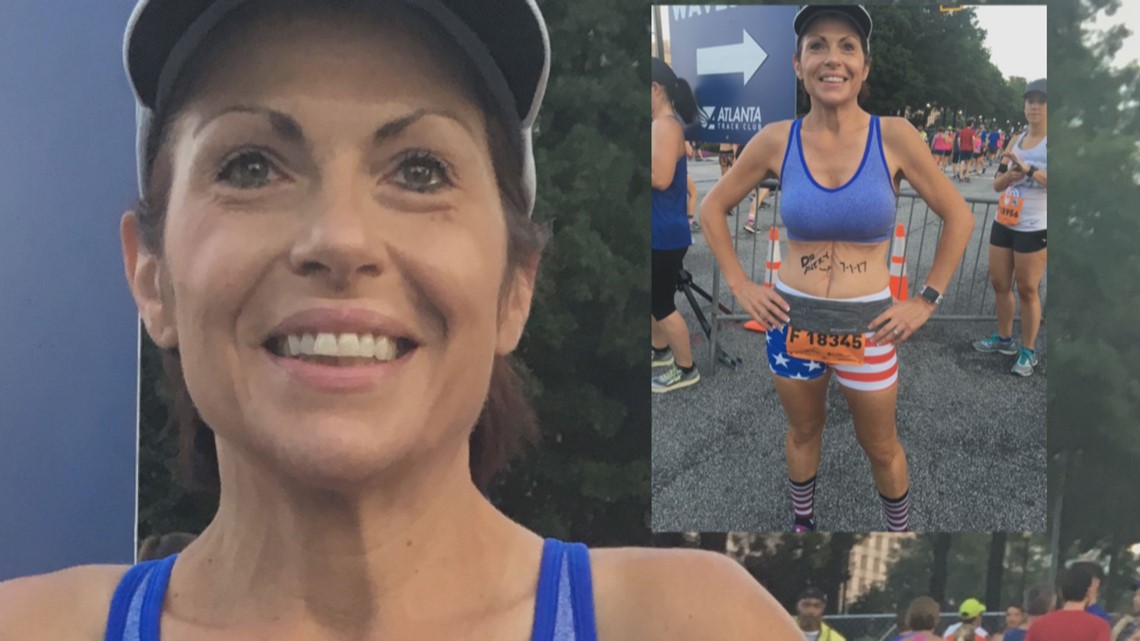
Jessica—a runner in her soul and spirit, soaring, no matter what had happened to her body.
And during this comeback run, when she reached the Shepherd Center along the course, instead of simply waving at the patients with spinal cord injuries who were cheering on the runners, she stopped, just to talk.
“It had a much different meaning to me," she explained. "Even though I hadn’t been a patient there, I said, ‘I had a spinal injury. And I just want to say I have a little glimpse into what everyone here is facing.’”
And she cheered them on.
“I mean, I crossed the finish line in tears.”
And ever since, Jessica has been expressing gratitude to the Gwinnett County first responders from that night, to Dr. Avery and Dr. Ayer, to all the nurses, her husband, Rick, and to all her family and friends.

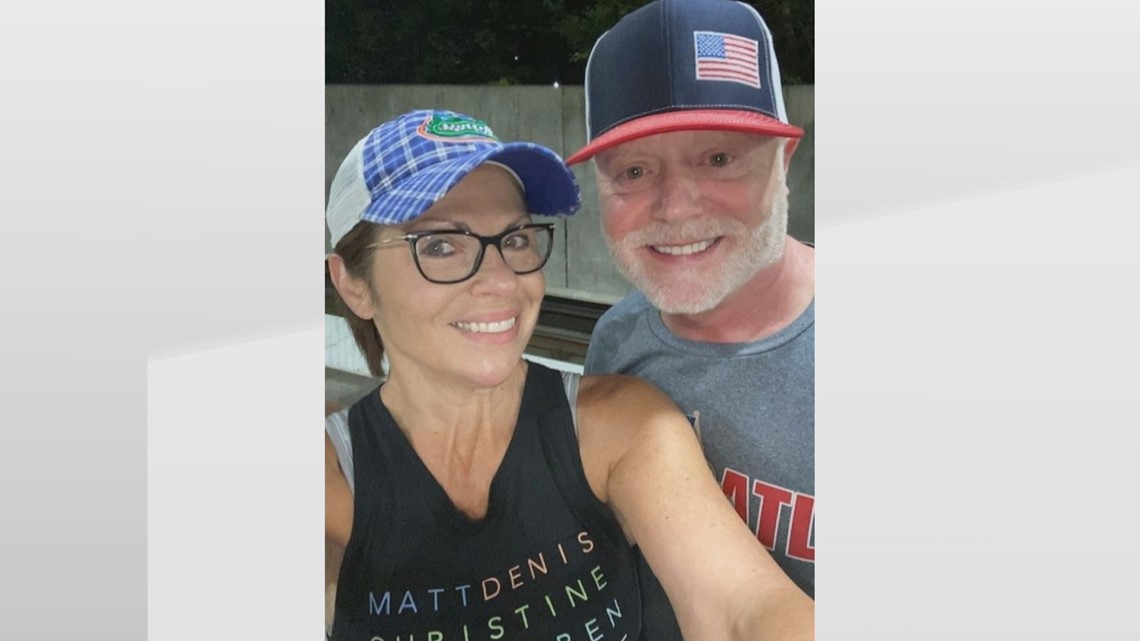
Jessica is the Business Development Specialist for Geo-Hydro Engineers. She said her colleagues and supervisors, including Managing Principal Phil Barber, were crucial, supporting her through her long recovery with meals and friendship and encouragement.
And she has written a letter to the car thief who caused all of this. He is in prison, and she told him she thinks about him every day, and that she has decided to forgive him. And, she told him how she hopes that he is turning his life around.
“I definitely see me pre-crash and post-crash with a much bigger awareness of the fragility of life, and I should strive to be a little more patient and a little more giving," she said. "Take a deep breath.
"If I'm in traffic in the morning, it doesn't affect me like it used to because I said, ‘You know what? I'm just fortunate to be sitting here and having a job to get to. I'm fortunate to to be able to get up every morning and lace up my shoes myself because it could have been a whole ‘nother way.'"
Her mission now—to live for others.
"I feel like it's important to share my experiences and my encouragement with the people around me that need it because I feel like I can," she said. "I'm in a situation now where I have a lot to give and there's a lot of people out there that could use encouragement.
"I just feel like it's my duty to to give of myself now," she added. "Because if I can do this, I’m hoping that it can give other people encouragement, that they can get through whatever it is they’re facing.”

